Home - News > Industry NewsIndustry News
What are the classifications of seamless steel pipes commonly used for fluid transportation in proce
Update:2023-12-25 View(s):464 Keywords :What are the classifications of seamless steel pipes commonly used for fluid transportation in proce
❶Carbon seamless steel pipe: Commonly used manufacturing materials are No.10, No.20, and 16 steel.
❷Low alloy steel seamless steel pipe: refers to alloy steel pipe containing a certain proportion of alloy elements. Usually divided into two types: one is low alloy steel pipe containing manganese element, called ordinary low alloy steel pipe, such as 16Mn, 15MnV, etc.; the other is low alloy steel pipe containing chromium, molybdenum and other elements, called chromium-molybdenum steel pipe.
❸Stainless acid-resistant seamless steel pipe: According to the different contents of various metals such as chromium, nickel and titanium, there are many varieties, including Cr13, 00Cr17Ni14Mo2, 1Cr18Ni12Mo2Ti, 1Cr18Ni9Ti, etc. The most commonly used steel grade among these is 1Cr18Ni9Ti, which is often represented by the simplified material code 18-8 on construction drawings, and its applicable temperature range is -196~700°C.
❹High-pressure seamless steel pipe: Its manufacturing material is the same as the above-mentioned seamless steel pipe, except that the pipe wall is thicker than medium and low-pressure seamless steel pipes, with the thickest pipe wall reaching 40mm. For example, the specifications of high-pressure seamless steel pipes for fertilizer equipment are φ14×4(mm)~273×40(mm), the length of a single pipe is 4~12m, the applicable pressure range is 10~32MPa, and the working temperature is -40~400℃.
❺ Low-temperature steel pipe: It is widely used in the cold areas of imported engineering projects. Its material grades are STPL-39 and STPL-46, and the working temperature can reach -105°C. Low-temperature steel pipes are divided into two types: seamless steel pipes and seamed steel pipes. The nominal diameter of seamless low-temperature steel pipes is 15 to 400mm, and the wall thickness is the same as that of carbon steel pipes; the nominal diameter of seamed low-temperature steel pipes is 400 to 1100mm, and the wall thickness is 6 to 10mm. The standard length of a root canal is 6m.
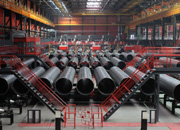 Threeway Steel is known as a professional supplier engaged in manufacturing and distributing a wide range of steel pipe, and our headquarter located the central part of China – Hunan and six associated factories throughout China.
Threeway Steel is known as a professional supplier engaged in manufacturing and distributing a wide range of steel pipe, and our headquarter located the central part of China – Hunan and six associated factories throughout China.
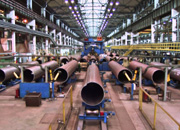 Threeway Steel is known as a professional supplier engaged in designing, manufacturing and distribution of a wide range of steel products with the headquarter located the central part of China – Hunan and six associated factories throughout China.
Threeway Steel is known as a professional supplier engaged in designing, manufacturing and distribution of a wide range of steel products with the headquarter located the central part of China – Hunan and six associated factories throughout China.
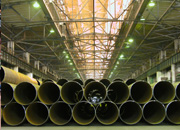 Threeway Steel is known as a professional supplier engaged in designing, manufacturing and distribution of a wide range of steel products with the headquarter located the central part of China – Hunan and six associated factories throughout China.
Threeway Steel is known as a professional supplier engaged in designing, manufacturing and distribution of a wide range of steel products with the headquarter located the central part of China – Hunan and six associated factories throughout China.
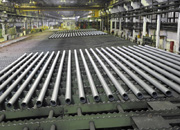 Threeway Steel is known as a professional supplier engaged in designing, manufacturing and distribution of a wide range of steel products with the headquarter located the central part of China – Hunan and six associated factories throughout China.
Threeway Steel is known as a professional supplier engaged in designing, manufacturing and distribution of a wide range of steel products with the headquarter located the central part of China – Hunan and six associated factories throughout China.
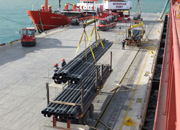 Threeway Steel is known as a professional supplier engaged in designing, manufacturing and distribution of a wide range of steel products with the headquarter located the central part of China – Hunan and six associated factories throughout China.
Threeway Steel is known as a professional supplier engaged in designing, manufacturing and distribution of a wide range of steel products with the headquarter located the central part of China – Hunan and six associated factories throughout China.

